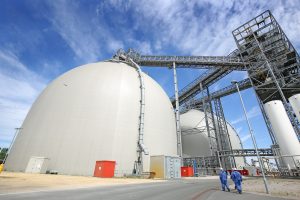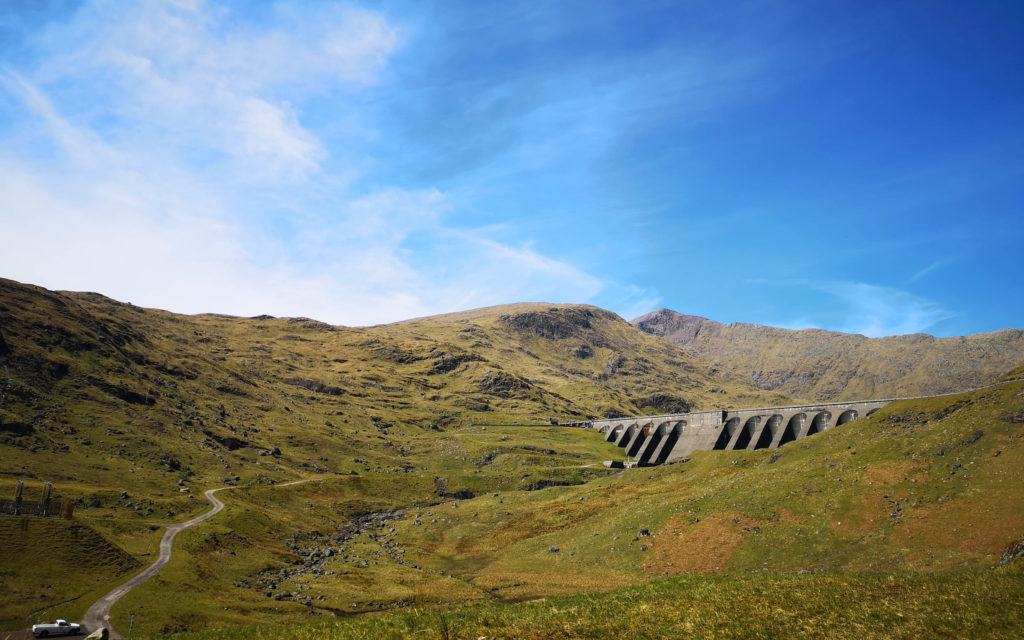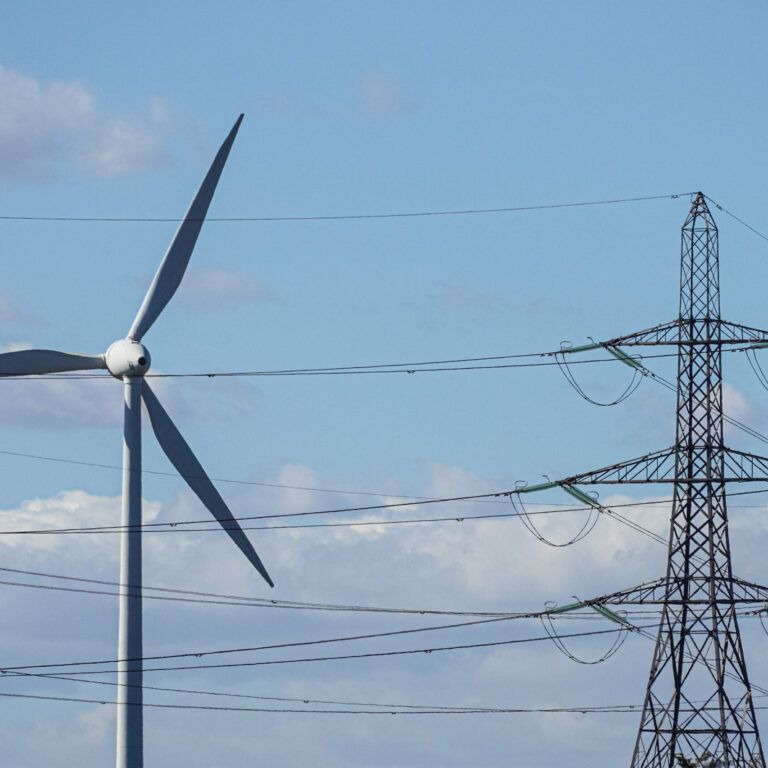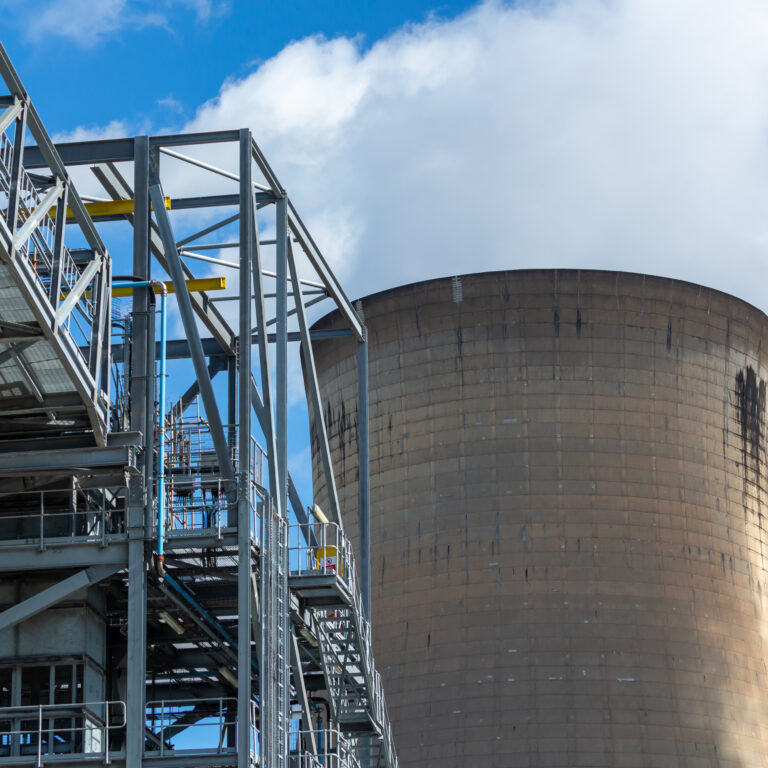For many years energy security was an issue resolved by complex, continent-wide gas pipelines which stretched from Russia into the heart of Europe.
We now know this reliance on Russian gas didn’t strengthen Europe’s energy security – in fact it weakened it.
The UK is less reliant on foreign gas than many countries in Europe in part due to the renewables revolution which has transformed our energy system over the last decade.
The rollout of biomass, wind and solar power has enabled the UK to decarbonise its power grid at a faster rate than any other major economy. And in order to reduce energy bills in the years ahead we need to have more clean, green, renewable power, which is generated in the UK for the UK.
Getting more green energy onto the grid can only be achieved through partnerships between government and private companies. For businesses like Drax, that means having the right policies now, to make large-scale investment decisions for the future, in vital green energy technologies like pumped storage hydro and bioenergy with carbon capture and storage (BECCS).
Drax has submitted planning applications for two major infrastructure projects designed to deliver both of these vital technologies in the 2020s. They form part of a £3bn investment strategy which Drax stands ready to implement this decade, underlining the company’s significant role as a growing, global business at the heart of the green energy transition.
Alongside strengthening the UK’s long-term energy security, these projects will support thousands of jobs and provide a real opportunity for economic growth.
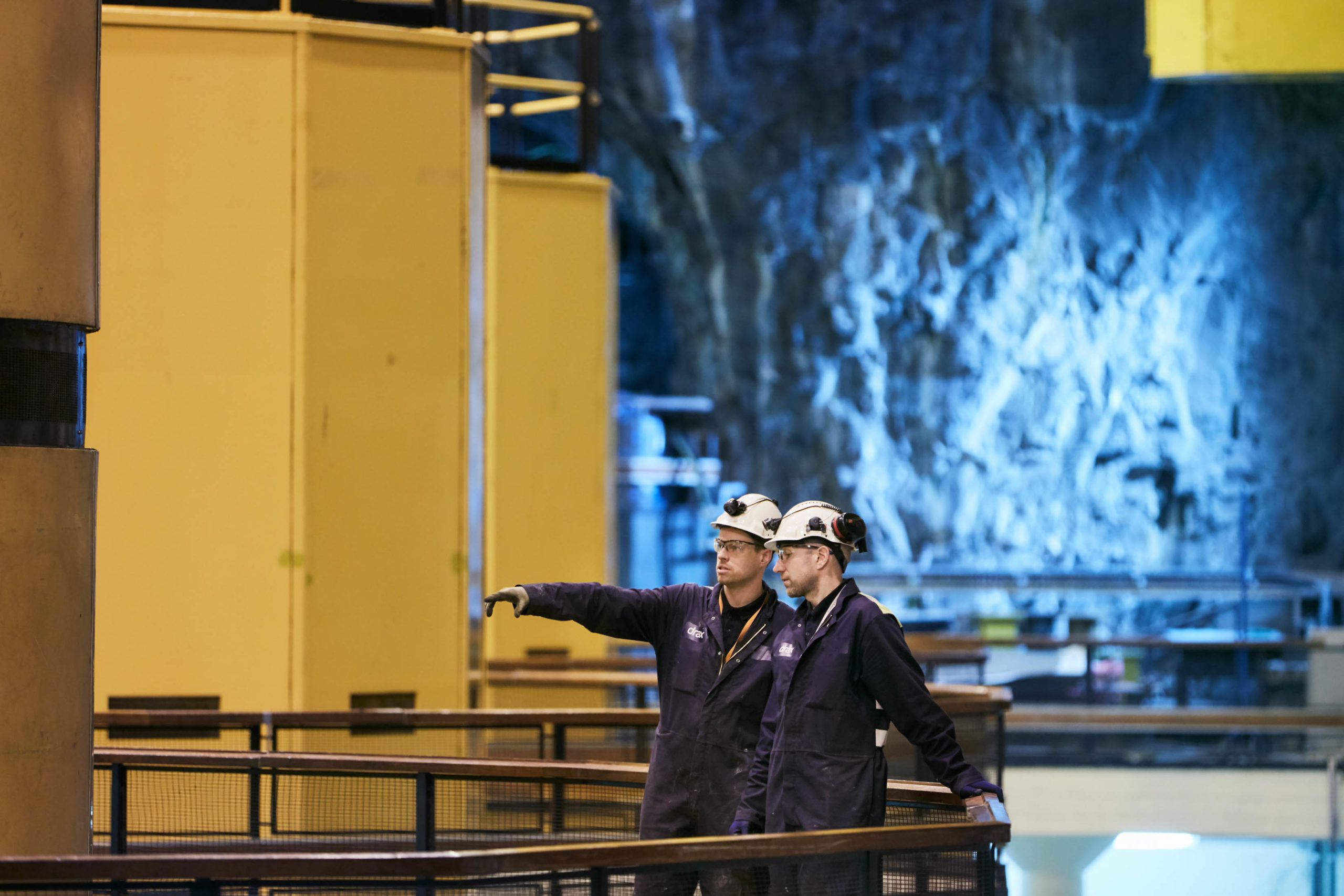
Engineers at Cruachan Power Station
We aim to double the capacity of our Cruachan pumped hydro storage facility in Scotland, supporting energy security and further decarbonisation of the grid, at lower costs.
Over the last two years, due to bottlenecks on the transmission system and a lack of energy storage capacity, enough wind power to supply 800,000 homes each year with renewable electricity, went to waste.
As household bills and global temperatures continue to rise, we can’t afford to let renewable power go to waste like this. We need more storage to harness the wind power available now, as well as the increased capacity being developed the coming years.
The only proven grid scale technology that can store vast quantities of energy for long durations is pumped storage hydro. Sites like Cruachan act like giant water batteries, using excess power from the grid to pump water to an upper reservoir where it is stored, before re-releasing it to generate electricity.
While the UK’s policy and market support mechanisms have evolved to support new build renewables, the current framework isn’t suitable for pumped storage projects that can have a lifespan of many decades.
Drax’s plans would enable more homegrown renewable power to come online to strengthen the UK’s energy security and lower carbon emissions. This additional capacity could be available within eight years.
To secure private investment in these projects, get shovels in the ground and work underway, developers need to know the policy environment they will be operating in.
Abandoning or delaying net zero will not save the country money, it will increase our reliance on foreign gas, leaving households at the mercy of international markets which no UK government can control.

Find out more about Cruachan 2 here.
In Scotland alone there is more than 4.3 GW of storage projects in planning or awaiting construction – this is enough capacity to power around three million homes.
Drax, alongside the developers of some of these other projects, has put forward plans for policies which would create the certainty needed to incentivise investment and kick start work to build the storage capacity this country needs for energy security.
These include introducing a cap and floor regime – the same support mechanism which was instrumental in the successful roll-out of interconnectors in Britain.
I urge the new Conservative Party leader to make the government’s response to these proposals a priority, as part of the package of measures needed to bolster the UK’s long term energy security and to bring the longer-term cost of energy down.
With the right policies to unlock investment, the UK can lead the world in energy storage technologies which are urgently needed to keep the lights on, cut carbon emissions and keep us on track to reach net zero.






